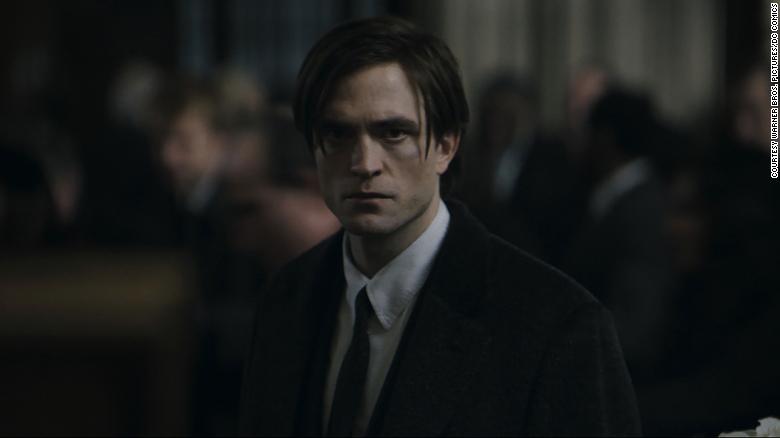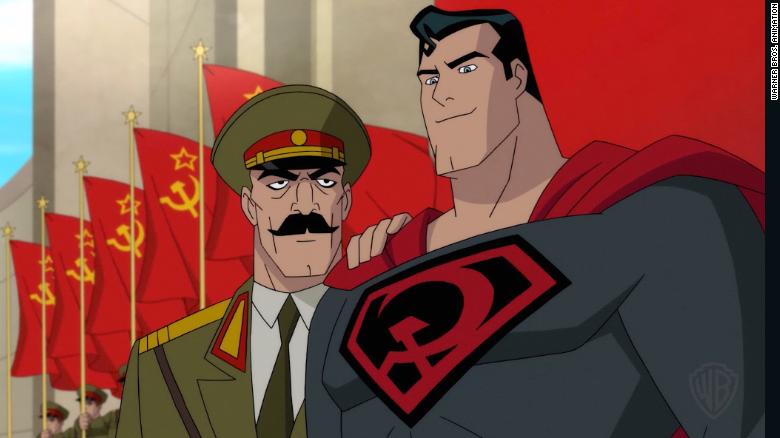
Robert Pattionson stars in the upcoming movie 'The Batman.'
(CNN)Marvel might have raced ahead of DC at the box office, but the rival comics company still possesses the two most iconic superhero franchises in Batman and Superman -- a commodity, as recent events have demonstrated, that can be both a blessing and a curse.
The latest DC FanDome event unleashed seismic waves through social media with the first extensive preview of
"The Batman," the upcoming movie starring Robert Pattinson. The film marks a significant reboot of the character, whose last solo screen outing -- excluding director
Zack Snyder's more recent contributions -- was "The Dark Knight Rises" in 2012.
Superman, meanwhile, caused palpitations in conservative media circles by announcing that the familiar slogan "Truth, justice and the American way" would
drop the nationalistic part of that equation, with the comics featuring Superman's son, Jonathan Kent, now going by the goal of "Truth, justice and a better tomorrow."
Never mind, as more than a few have noted, that "The American way" was a World War II addition for the radio show in the 1940s, one that followed the character into television. As Erik Lundegaard
wrote in the New York Times after "Superman Returns" premiered in 2006, when the radio show made its debut during World War II, "We were all fighting for the American way. Why shouldn't Superman?"
Coming on the heels of the recent announcement that Jonathan Kent in the comics
is bisexual, it didn't take much to trigger charges of "woke" media reshaping the Man of Steel to fit their narrative and rejecting "the American way."
DC Comics publisher Jim Lee explained the "new mission" by stating that it "better reflects the storylines that we're telling across DC and honors Superman's incredible legacy." (DC and Warner Bros. are part of WarnerMedia, as is CNN.)
Through the years, the excitement that has greeted new projects featuring these twin creations of the 1930s has often been accompanied by angst and handwringing. The value of being etched in the public consciousness -- of needing no introduction, unlike something like DC's
"Black Adam" or Marvel's upcoming
"Eternals" -- comes with the baggage of everyone harboring preconceived notions of what the character represents, or at least should.
Yet the at best myopic and at worst bad-faith takes ignore that reinvention and reconstruction of the characters' mythology -- sometimes in "what if," alternate-history form, others more enduring -- has consistently been a part of these heroes, and indeed has helped account for their durability.
Along the way, there has been the lighter Batman that became the source of the campy TV show starring Adam West in the 1960s, giving way to the darker version that Tim Burton advanced with "Batman" in 1989. Camp returned under director Joel Schumacher, before Christopher Nolan's trilogy starring Christian Bale.
Comic-book visions of Batman, already adapted as animated movies, have also ranged from young and learning the ropes ("Batman: Year One") to older, gnarled and bitter ("The Dark Knight Returns"). That latter strain clearly informed Ben Affleck's take, and it's worth remembering his casting triggered a "Batlash" that nearly broke Twitter.
As for Superman, there has been plenty of experimentation and flights of fancy there as well, including
"Superman: Red Son," which speculated about what might have happened if this strange visitor from another planet had landed in Russia instead of Kansas.
Still, whenever DC strays from what's perceived to be the square-jawed vision of these characters on the cover of World's Finest comics in the 1950s (back when they were largely stripped of such gradations), everyone is suddenly an expert, and such perspective inevitably goes flying out the window faster than a speeding bullet.
Built on a foundation of characters introduced in the 1960s, Marvel had to play catch up during the early stages of its cinematic plans, but its success since "Iron Man" has yielded a similar sense of ownership among fans, in a "More money, more problems" manner.
Still, the unique place that Superman and Batman occupy in pop culture creates a distinct set challenges, as well as opportunities. While it's hard to tell whether "The Batman" can live up to the hype and expectations, it's a safe prediction that when the Batmobile hits the road again in March, it won't suffer for a lack of backseat drivers.
